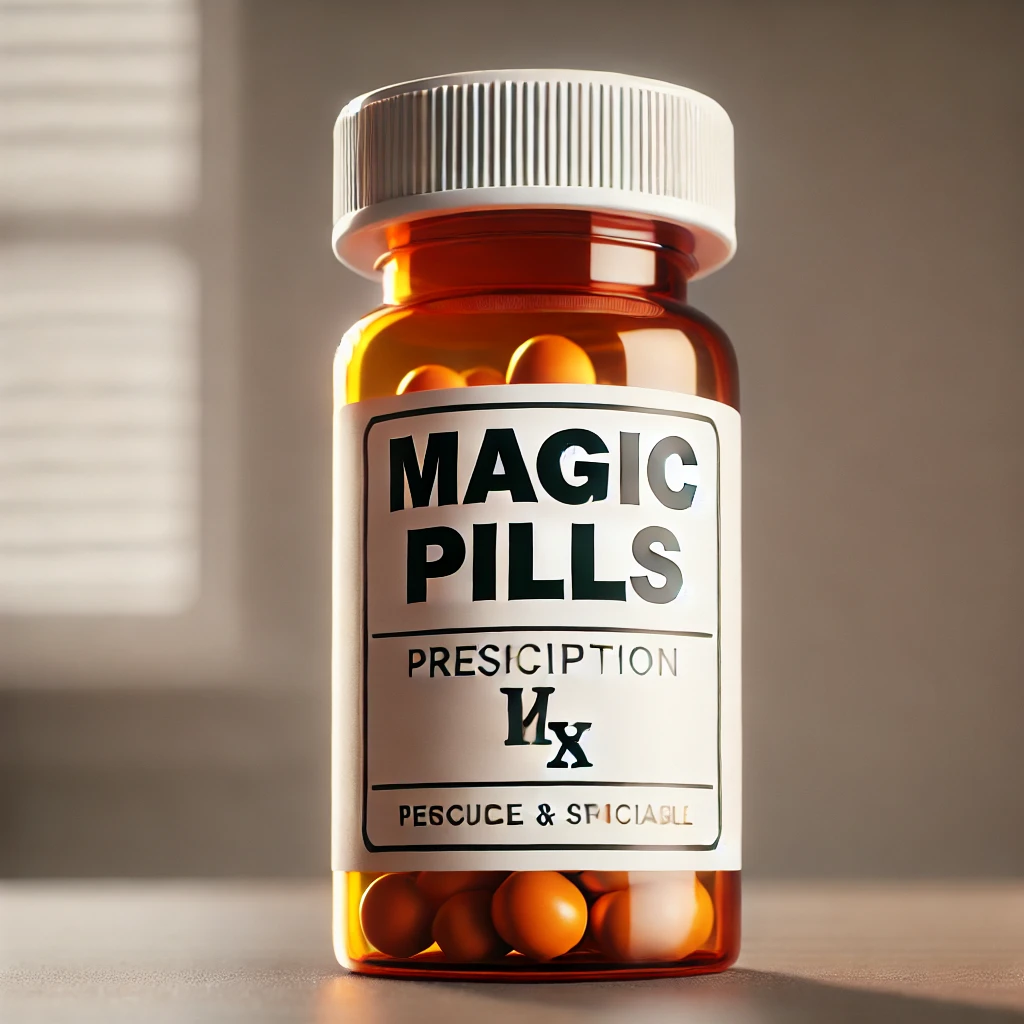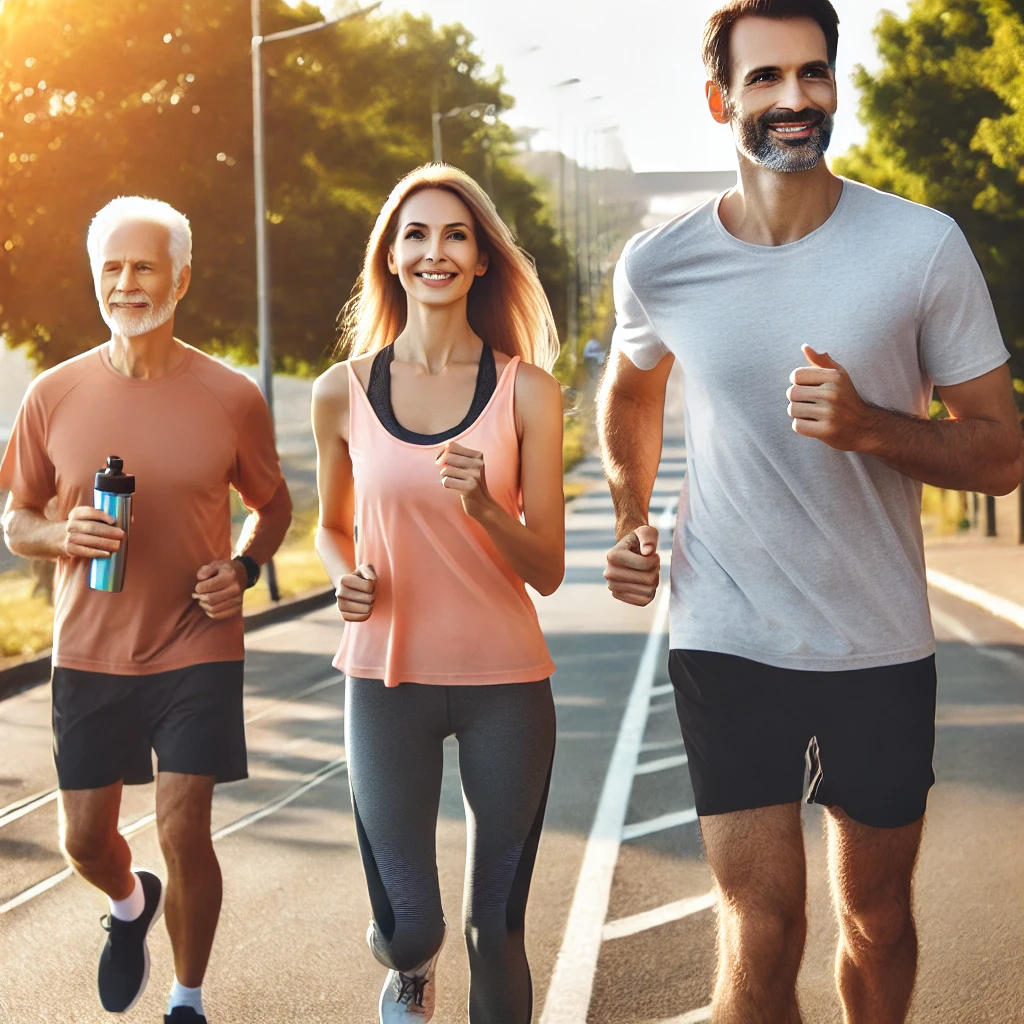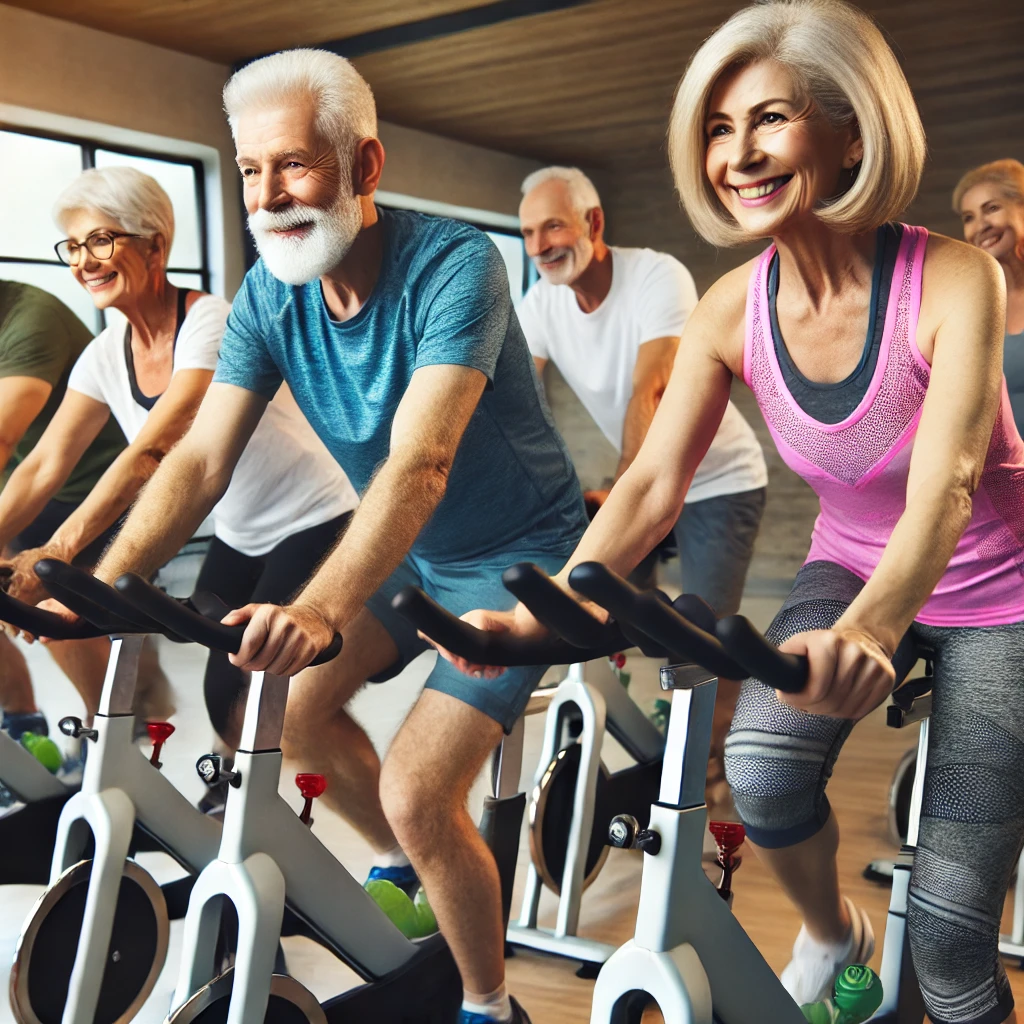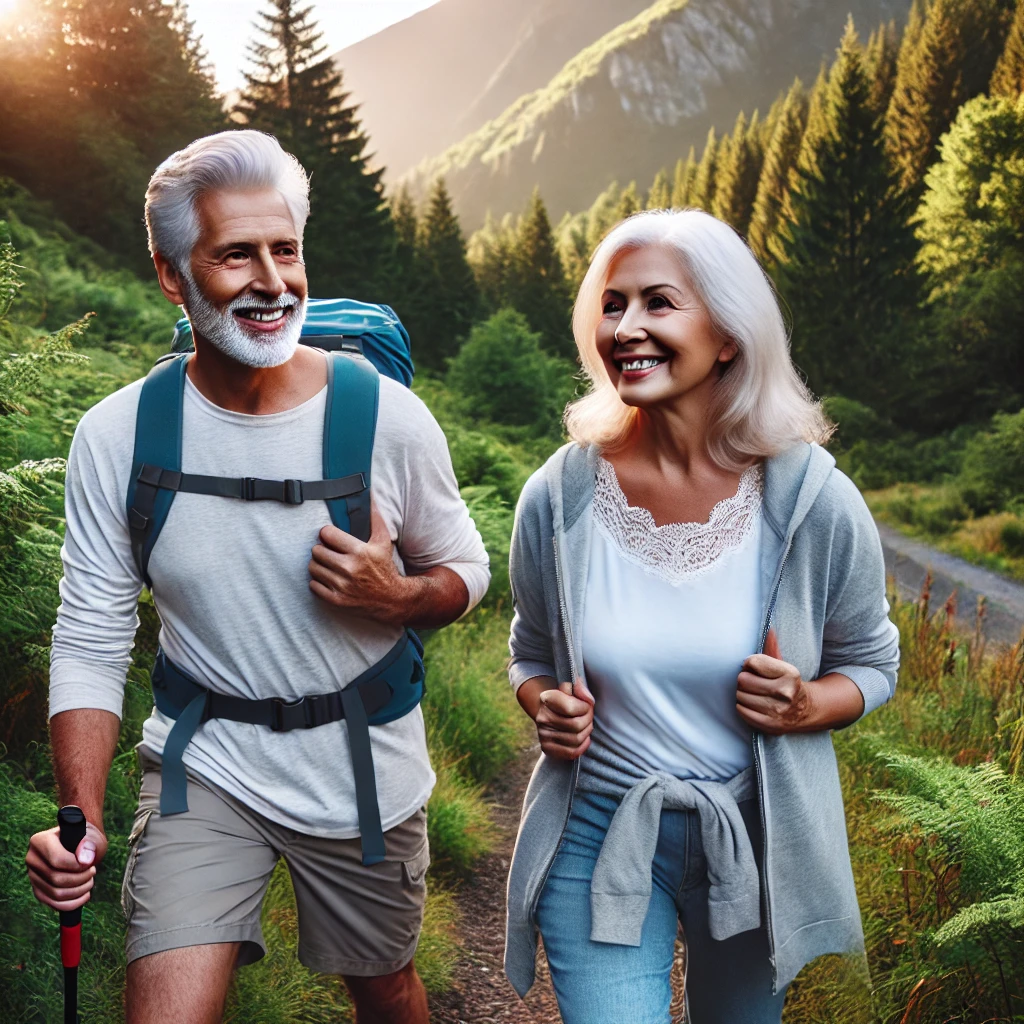If there were a magic pill that could boost your brain power, strengthen your heart, improve your mood, and even help you live longer, wouldn’t you take it? Well, the good news is—you don’t need a pill. You just need to move.
Aerobic exercise, also known as cardio, is one of the most powerful tools you have for improving your health and longevity. The best part? You don’t have to run marathons or spend hours on a treadmill. Walking is enough to get you started—and if that’s all you ever do, that’s perfectly fine!

What is Aerobic Exercise and Why Does It Matter?
Aerobic exercise is any activity that increases your heart rate and breathing for an extended period. This includes:
✅ Walking
✅ Jogging
✅ Cycling
✅ Swimming
✅ Dancing
✅ Hiking

When you engage in aerobic activity, your heart and lungs work together to pump more oxygen to your muscles, which in turn improves endurance and overall fitness. The better your VO2 max, the more efficiently your body can use oxygen.
VO2 max is just a fancy way of saying how well your body can take in and use oxygen during exercise. It’s a key measure of cardiovascular fitness and an important predictor of overall health. The great news? You can improve it by training! Even small, consistent efforts like brisk walking can increase your VO2 max over time.
The Brain-Boosting Benefits of Aerobic Exercise

Want to keep your brain sharp as you age? Get moving! Aerobic exercise has profound effects on brain health, including:
🧠 Boosting memory & learning – It increases blood flow to the brain, promoting growth of new brain cells.
🧠 Reducing the risk of dementia – Studies show regular cardio can lower the risk of cognitive decline.
🧠 Improving mood & reducing stress – It releases endorphins, which help combat anxiety and depression.
🧠 Helping with focus & concentration – It improves attention and decision-making skills.
Basically, cardio is like a natural brain fertilizer. The more you move, the better your brain functions!
Physical Benefits of Aerobic Exercise
Your brain isn’t the only thing that benefits—your body will thank you, too!
💖 Strengthens your heart – Cardio makes your heart more efficient, lowering your risk of heart disease.
💪 Helps with weight management – It burns calories and helps maintain a healthy metabolism.
🩸 Lowers blood pressure & cholesterol – Regular movement improves circulation and artery health.
🦴 Supports joint & bone health – Weight-bearing cardio (like walking) strengthens bones and reduces arthritis symptoms.
🚀 Boosts energy levels – It increases oxygen flow, helping you feel less sluggish throughout the day.

How to Get Started (and Stick With It!)
Starting doesn’t have to be complicated. Just start where you are.
🏃♂️ Start with walking – If you’re not used to cardio, a 10-minute walk is a great starting point. Increase time and speed gradually.
🏃♀️ Find something you enjoy – Hate running? Try dancing. Don’t like the gym? Walk outside or ride a bike.
🏋️♂️ Use an accountability partner – Having a workout buddy helps keep you consistent, even when motivation dips.
📆 Schedule it like an appointment – Treat workouts like a non-negotiable meeting.
⏳ Be patient and build up slowly – No need to go all-out on day one. Consistency beats intensity when it comes to lasting health benefits.
Your Call to Action: Move Right Now!
Let’s make this simple: Stand up and take 10 steps. Right now.
That’s it.
If you have time, take a quick 5-minute walk. If not, commit to doing something later today—even if it’s just walking around the block or marching in place during a TV commercial.
Every movement counts. The more you move, the better you’ll feel, think, and live.
Let’s go!
Mike
Mike Thomas is a registered pharmacist and a Mayo Clinic-trained, board-certified health coach. He specializes in helping busy professionals overcome low energy, high stress, and chronic pain to reclaim their health and vitality.
This blog is for educational and informational purposes only and solely as a self-help tool for your own use. I am not providing medical, psychological, or nutrition therapy advice. You should not use this information to diagnose or treat any health problems or illnesses without consulting your own medical practitioner. Always seek the advice of your own medical practitioner and/or mental health provider about your specific health situation. For my full Disclaimer, please go to CoachMikeThomas.com.
